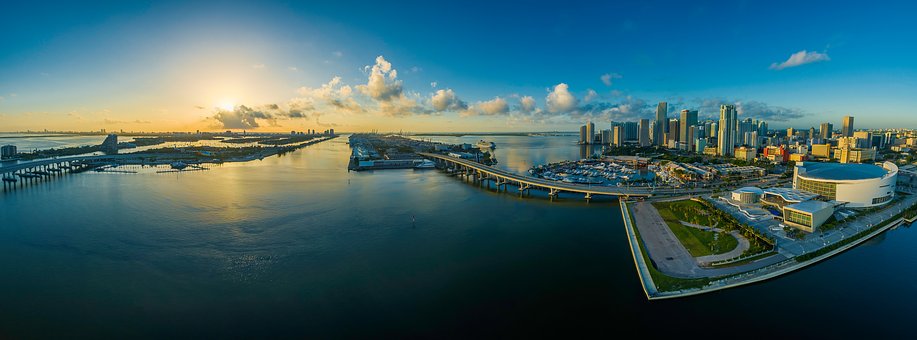Owning an investment property in SMSF has become increasingly popular. However, in the 2017/18 Budget, the federal government announced significant changes in relation to claiming deductions in relation to Travel Expenses for residential property in an SMSF.
From 1st July 2017, travel expenditure incurred in inspection and maintenance of residential investment properties as well as rent collection, cannot be claimed as deduction by individual investors anymore. This expenditure includes motor vehicle expenses, taxi or hire car costs, airfares, public transport costs, and any meals or accommodation related to the travel, as noted in 2017–2018 Federal Budget. However an SMSF can claim a deduction for the cost of travel incurred to inspect or maintain rental properties or to collect rent if the expenses were incurred for commercial rental properties.
The dis-allowance of the deduction of travel expenses is due to the ‘widespread abuse around excessive travel expense claims relating to residential investment properties’ and for the purpose of ‘improving the integrity of the tax by addressing the systematic risk of excessive and incorrect claims for travel expenses associated with residential investment properties’, quoting the Treasury Laws Amendment Bill 2017.
Can Travel expenses be paid for by the SMSF?
It is clear that SMSFs can longer claim travel expenses for an SMSF, however can travel expenses be paid for from an SMSF. Key considerations are detailed below:
Sole purpose test
The sole purpose test in section 62 of the Superannuation Industry (Supervision) Act 1993 (SISA) requires that any decision made by SMSF trustees in relation to the fund should be made for the sole purpose of providing retirement benefits to members. Any expense that provides a current day benefit to members could be regarded as evidence of a breach of section 62 of the SISA.
The determination of whether the fund is in breach of section 62 of the SISA will require a holistic assessment of all the circumstances surrounding the travel expenses incurred. The best way to assess s62 to travel expenses is to use the “pub test”, that is the expenses must relate to the gaining of assessable income i.e. no trips to Dreamworld, just expenses relating to the visit of the property.
Self Managed Superannuation Funds Ruling 2008/2: the application of the sole purpose test in section 62 of the Superannuation Industry (Supervision) Act 1993 to the provision of benefits other than retirement, employment termination or death benefits (SMSFR 2008/2) outlines the Commissioners views on the operation of the sole purpose test.
Paragraphs 8 and 9 of the SMSFR 2008/2 state:
- Nevertheless, the provision by an SMSF of benefits other than those specified in subsection 62(1) that are incidental, remote or insignificant does not of itself displace an assessment that the trustee has not contravened the sole purpose test. As set out at paragraph 5 of this Ruling, determining whether benefits are incidental, remote or insignificant requires the circumstances surrounding the SMSF’s maintenance to be viewed holistically and objectively.
- For example, an SMSF may provide benefits that fall outside the scope of those that are specified in subsection 62(1) as an incident of activities carried on by it that meet the requirements of the sole purpose test. In contrast, the provision of benefits, other than those specified in subsection 62(1), that is not an inherent or unavoidable consequence of otherwise legitimate activities of the SMSF may result in a contravention of the sole purpose test, particularly if the benefits are relatively significant in nature.
Paragraphs 12 and 13 of the SMSFR 2008/2 further state:
- Factors that would weigh in favour of a conclusion that an SMSF is notbeing maintained in accordance with section 62 because of the provision of benefits not specified in section 62 include:
- · The trustee negotiated for or sought out the benefit, even if the additional benefit is negotiated for or sought out in the course of undertaking other activities that are consistent with section 62.
- · The benefit has influenced the decision-making of the trustee to favour one course of action over another.
- · The benefit is provided by the SMSF to a member or another party at a cost or financial detriment to the SMSF.
- · There is a pattern or preponderance of events that, when viewed in their entirety, amount to a material benefit being provided that is not specified under subsection 62(1).
- Factors that would weigh in favour of a conclusion that an SMSF isbeing maintained in accordance with section 62 despite the provision of benefits not specified in section 62 include:
- · The benefit is an inherent or unavoidable part of other activities undertaken by the trustee that are consistent with the provision of benefits specified by subsection 62(1).
- · The benefit is remote or isolated, or is insignificant (whether it is provided once only or considered cumulatively with other like benefits) when assessed relative to other activities undertaken by the trustee that are consistent with the provision of benefits specified by subsection 62(1).
- · The benefit is provided by the SMSF on arm’s length commercial terms (for example, if the benefit is provided at market value), consistent with the financial interests of the SMSF and at no cost or financial detriment to the SMSF.
- · All of the activities of the trustee are in accordance with the covenants set out in section 52.
- · All of the SMSF’s investments and activities are undertaken as part of or are consistent with a properly considered and formulated investment strategy.
It is clear from the above, that travel expenses can be paid from the SMSF, however are not deductible for residential properties, subject to meeting the sole purpose test. A “pub” or “reasonable person” test should be applied in relation to any expenses incurred to ensure they are no excessive and not in breach of the sole purpose test.
Ivan Filipovic is a leading SMSF Specialist Advisor with Redwood. Ivan is a Self Managed Superannuation Specialist with over 20 years provides a range of services across all sectors of Self Managed Superannuation, Property and Finance with an emphasis on long term wealth strategies. Ivan is a Chartered Accountant, Financial Planner, ASIC registered auditor, Mortgage Broker, Tax Agent and Licensed Property Professional.







